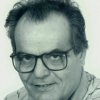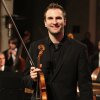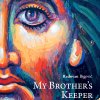Danilo is an engineer, having a Masters degree. He was educated in Blagaj, Mostar, Trstenik and Sarajevo. He worked for over 40 years, 35 years in Mostar and 5 years in Los Angeles, and is now retired. At the dawn of the Yugoslav civil war, on April 3 1992, he left the [Mostar] area as a refugee, and three years later he immigrated to Los Angeles, USA, where he resides 11 years (1995-2006).
Danilo Maric is a fiction writer. He has written 11 novels, 120 short stories, and many poems and plays.
He is marry, and have 3 kids.





